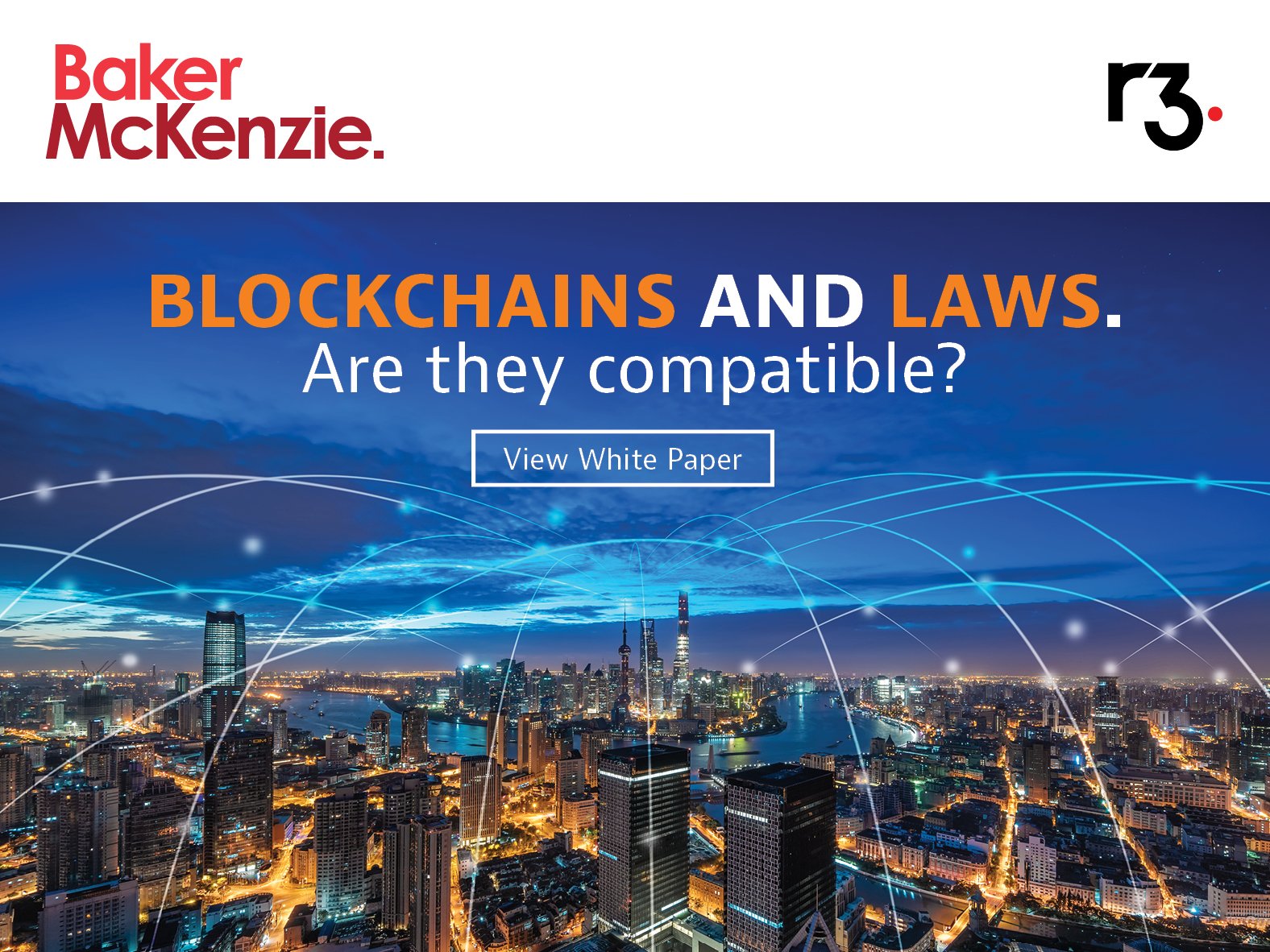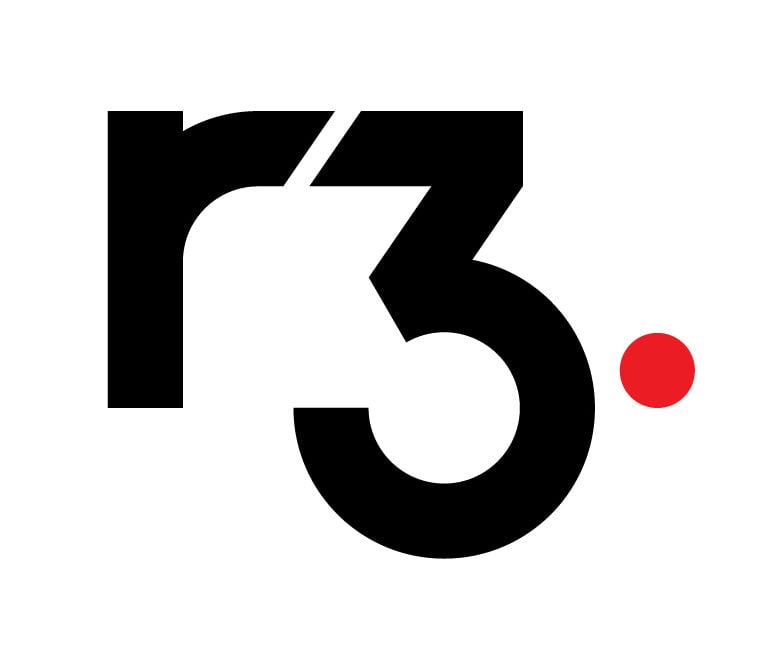Any distributed ledger used by an enterprise or industry needs to conform to data requirements in the countries in which it operates. Existing blockchains based on Bitcoin and Ethereum codebases can indiscriminately broadcast private data to all participants of a network, and therefore may not always be suitable for use in financial services.
Distributed ledgers have been developed that share certain data only with participants who need to see it, most notably R3’s Corda. These distributed ledger technology implementations are more flexible and can more easily meet existing and potential future data requirements.
Legal requirements are evolving rapidly and it is important to ensure that the implications of new technologies are reviewed by appropriate counsel.
“Blockchains and Laws. Are they compatible?” is a white paper championed by Baker McKenzie in collaboration with R3.




